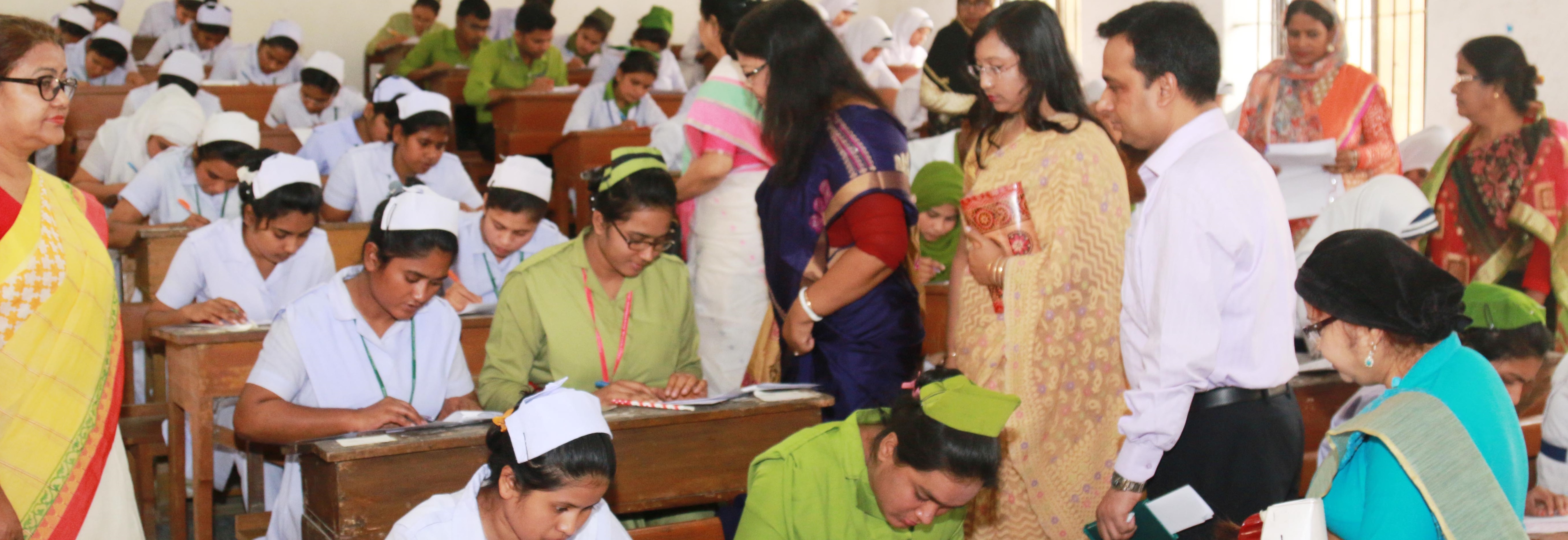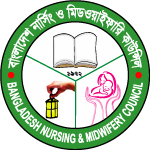পটভূমি
|
Welcome to Bangladesh Nursing and Midwifery Council (BNMC)
The main responsibilities of the BNMC are:
HISTORICAL DEVELOPMENT OF THE BANGLADESH NURSING AND MIDWIFERY COUNCIL
In 1949 a group of nurses were sent to England for basic training, on return they were posted in leadership positions in the Nursing Service section. In 1950 the then Govt. offered fellowships to nurses for studying abroad. The WHO started their technical assistance on nursing in 1952, as a result the educational programmes were upgraded. The East Pakistan Nursing Council was fully constituted in 1952 as a Regulatory Body for Nursing Education and Services. After liberation it was renamed as the Bangladesh Nursing and Midwifery Council (BNMC). In 1956 the College of Nursing was established in Karachi to offer Post-basic Diploma in Administration and Teaching. Few nurses were sent over there to have those programmes. Later on selected nurses were sent to have B.Sc. and M.Sc. degrees from Boston University, USA, under the USAID fellowship programme. In 1960 the Junior Nursing Training Schools were abolished and in between 1962 & 1970 the Senior Nursing Training Schools were established attached to 8 (eight) Medical College Hospitals to provide Diploma in Nursing and Midwifery. The College of Nursing, Mohakhali, Dhaka was also established in 1970 to offer Post-basic Diploma in Administration and Teaching. During 1970-1971 Senior Nursing Schools was further established attached to 12 District Hospitals and started crash programme without having any sanctioned posts for Sister Tutors, physical facilities and teaching- learning resources. The students, teachers and the teaching-learning resources had to be borrowed from other schools/ institutes to start these Schools. However, the number of nurses was increased at 600 in 1970 from 50 in 1947. Post-liberation (Since 1971): Prior to the creation of the ursing Nursing and Midwifery Council , the former Director of Health Services had managed the Nursing Education and Service Sector. There was a section headed by a Superintendent of Nurses in the Directorate of Health Services to look after the business of Nursing Education and Services. The Superintendent was a very Junior Officer in the Directorate of Health Services. After liberation the number of Hospitals, Medical Colleges, Nursing Schools/Institutions; Doctors, and Nurses had been increased to meet the growing demands of health care services. In addition, many development projects were undertaken by the Government to meet the growing needs of the nation, but it was not possible for the then DGHS to give due attention required by the Nursing Sub-sector equally with Medical sector. Consequently nursing matters were delayed in being presented to the Ministry of Health & Family Welfare. The creation of the DNS was therefore mainly based on-
The Directorate of Nursing Services was therefore established on 14th May in 1977 under the Ministry of Health and Family Welfare, as the central body to run the nursing profession towards constituting a significant force in the health care delivery system congruent with national health goals (order No P-II/1C-18/77/391, dated 14/5/1977). After the creation of a separate Directorate for the Nursing Education and Services, the Superintendent, who was the In-charge of Nursing Section in the Directorate of Health services (DHS), was appointed as the Director of the Nursing Services. Since the Superintendent of Nurses was a Junior Officer, she was not been appointed at the equivalent rank and status as the Director of Health Services or Family Welfare. She was given the rank and status at a considerably lower level. However, the creation of the DNS was a major shift from a small section to an independent Directorate. Though the rank and status of the DNS was supposed to be raised at that time, unfortunately no action has been taken yet. Consequently, the Directorate of Nursing Services remains in the rank and status at a much lower level than her counterparts in the Health and Family Planning. Later, the DHS became the Director General of Health Services and has many Directors unfortunately the Nursing Directorate remains unchanged, as it has not yet been upgraded.
The Nursing and Midwifery Council is the central body who enhances nursing services by leading the profession towards constituting a significant force in the health care delivery system for achieving the Goal `Health for All' congruent with the National Health Goals. Main aim is to make people healthier, productive and happier. In achieving the national health goals nursing professionals need to assist people for leading healthy life, having dignity and creativity, and behaving with a neighborly manner. Self-reliance among people will be the result by which they would take more active part in the society if they want to be healthy and happy. In meeting the health related societal needs the Nursing Directorate plays the main roles and responsibilities in preparing and developing registered nurse and midwives who:
|


.jpg)








